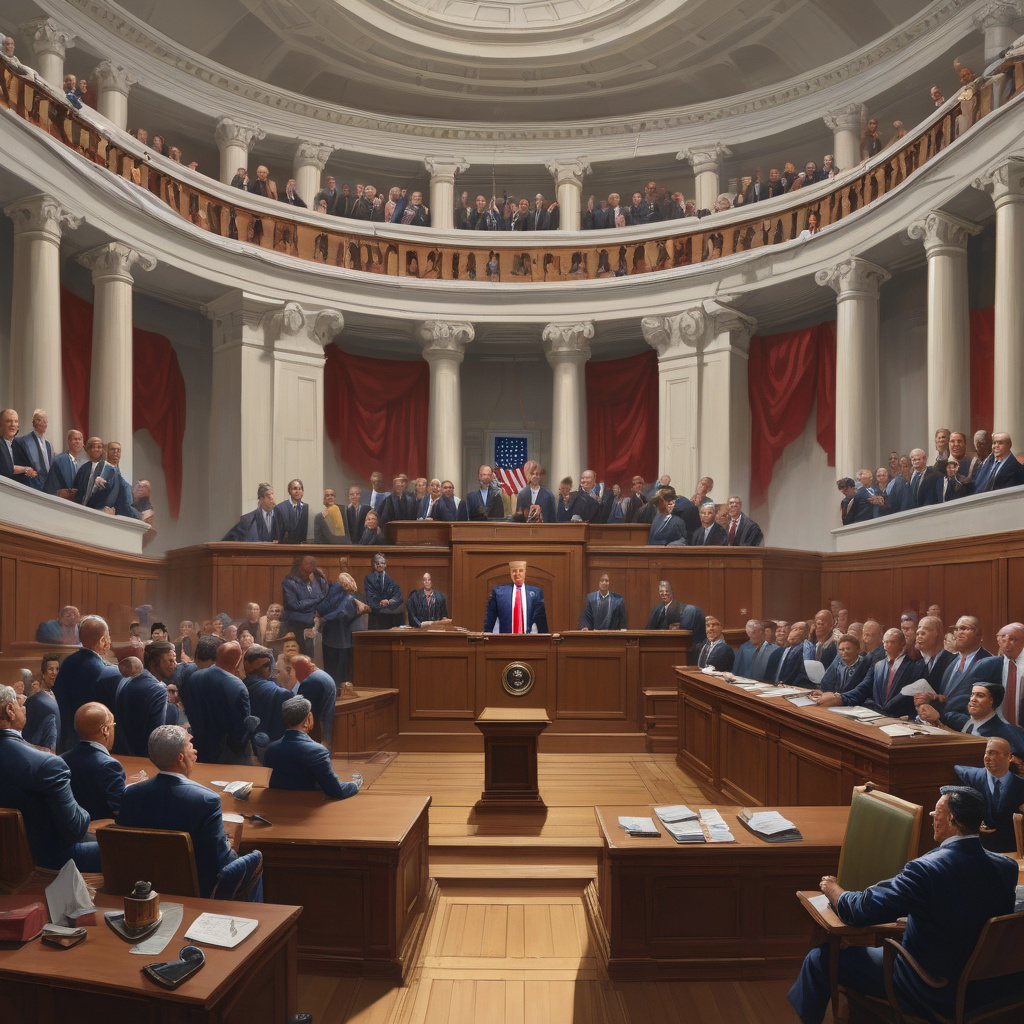Trump’s Global Tariffs Blocked by US Court
In a significant turn of events, a US trade court has ruled that President Donald Trump’s global tariffs are unlawful, marking a pivotal moment in American trade policy. The ruling, which has sent ripples across the business community and international markets, challenges one of the key pillars of Trump’s economic strategy during his administration.
The court’s decision comes after numerous challenges from various sectors, particularly from businesses that rely heavily on imported goods. The tariffs, initially introduced as a means to protect American industries and workers, have instead led to increased costs for consumers and companies alike. By imposing tariffs on a wide range of goods, from steel and aluminum to consumer electronics, the Trump administration aimed to create a more favorable balance of trade. However, the unintended consequences of these tariffs have sparked widespread criticism.
The court’s ruling emphasizes that the tariffs exceed the authority granted to the President under the Trade Expansion Act of 1962. This act allows the President to impose tariffs only in response to national security threats, a justification that many legal experts and economists argue does not hold water in this context. The court found that the economic rationale for the tariffs was insufficient to warrant such sweeping measures, reinforcing the principle that trade policy should be based on sound economic evidence rather than political expediency.
The implications of this ruling are far-reaching. For one, it could lead to a reduction in prices for consumers, as businesses that had previously passed on the costs of tariffs may now be able to lower their prices. Additionally, the ruling could provide relief to American manufacturers that have been struggling to compete in a global market where their foreign competitors have not been subject to the same tariffs. This could foster a more competitive environment and spur innovation, ultimately benefiting the economy as a whole.
Moreover, this ruling may set a precedent for future trade policy, signaling to incoming administrations that unilateral tariff actions may face legal challenges. This could encourage a more collaborative approach to trade negotiations, where countries work together to resolve disputes rather than resorting to protectionist measures that can lead to trade wars. The global economy has become increasingly interconnected, and the ripple effects of tariffs can be felt far beyond American borders.
One notable example of the impact of these tariffs was seen in the steel industry. While the tariffs were intended to protect American steel manufacturers, many companies that relied on steel for production faced rising costs. For instance, car manufacturers reported significant increases in production costs, which they ultimately passed on to consumers in the form of higher prices for vehicles. In this case, the tariffs failed to achieve their intended purpose of bolstering American industry and instead burdened consumers and businesses alike.
The ruling also arrives at a critical moment as global trade relationships continue to evolve. Countries around the world have been navigating the complexities of trade agreements, and the uncertainty brought about by the tariffs has complicated these negotiations. With the court’s decision, there is potential for a thaw in trade relations, allowing countries to engage in more constructive dialogue rather than contentious disputes.
Looking ahead, businesses must now reassess their strategies in light of the ruling. Companies that have adjusted their supply chains to account for the tariffs may find new opportunities as the landscape shifts. Additionally, the ruling may prompt businesses to advocate for more stable and predictable trade policies, which can foster long-term planning and investment.
In conclusion, the recent ruling by the US trade court to block Donald Trump’s global tariffs represents a significant shift in American trade policy. It underscores the importance of adhering to legal and economic principles in the development of trade strategies. As businesses and policymakers navigate this new landscape, the focus should remain on fostering collaboration and ensuring that trade policies promote growth and innovation rather than division and uncertainty.
#TrumpTariffs, #TradePolicy, #USCourtRuling, #GlobalTrade, #BusinessImpact
